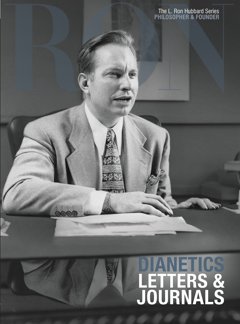The Main Principles Of Dianetics
The Main Principles Of Dianetics
Blog Article
Dianetics Fundamentals Explained
Table of ContentsAll about DianeticsDianetics Things To Know Before You Get ThisDianetics for DummiesThe Only Guide for Dianetics
I could not ever before not intend to receive anything that comes to mind for you- if it was otherwise, I wouldn't be sitting right here with you, doing this. I not only might never ever have a trouble, or otherwise desire to hear something that enters your mind for you, however I'm entirely eager to recognize every idea, every thought, every picture or sensation that arises or manifests for you- do not ever before think otherwise, and if for some reason you do, please simply allow me recognize! In some cases, you may have an idea, and picture, idea or event pop up that does not seem to respond to the question, or connect to it, however however, always do tell me concerning it, and as we proceed, the importance will certainly emerge for you.This is integral in the basis of handling, and the topic of this discussion: the basic roles of the therapist and the customer: The standard function of the therapist is, unlike "common training", not to manage, which implies to enforce and/or hinder, however to rather function from the basis of EMPOWERING THE CLIENT.

The Best Guide To Dianetics
John Mcmasters shared this fundamental reality incredibly well in among his talks on Power processing, where he describes exactly how he was asked what this "special flair" was that he had for providing such great sessions; he needed to think concerning that for a moment, and found that it was what he wasn't doing, along with what he was doing: he wasn't assessing, evaluating, computing, or as a matter of fact, creating any ideas, let alone verbal expressions, after offering the command and while waiting for the computer to complete their answer to their satisfaction; he was, simply and just, existing with the computer, and completely interested.
The duty of the therapist, showed; that was his "special flair". I have actually had my own experience which instructed me this well, really at an early stage in the video game. In 1982, having actually recently completed my training and internship on New Age Dianetics, I was running this on a COMPUTER, and there was a factor in the session where (being a little bit wet behind the ears not yet having numerous hours under my belt as an expert auditor) the computer seemed to be "taking as well lengthy" to reveal anything vocally after I offered him a command.
This trick became the most beneficial contribution that John ever made to the subject of therapy or auditing (Dianetics). In my humble viewpoint, it is the best payment that any individual has ever before made to these subjectsthe application is completely non-judgemental, non-evaluative, and lacking any tip, suggestions or opinion.no preconditioned schedule for individuals, or 'degrees' that they have to do
In Idenics, the only resource of details concerning a client is the private customer. In Scientology we prided ourselves on not examining for individuals. However all that really implied was that the auditor did not VERBALLY evaluate for the PC in session. The registrars and ethics officers evaluated for the PC.
The Best Strategy To Use For Dianetics

Any individual who had ever before seen John audit might not help yet see an unique quality in his bookkeeping."The client's fundamental duty is to be there with the function of relocating in the direction of their spiritual objectives, and to easily and completely share and experience whatever materializes for them in answering the concerns and carrying out the guidelines in the processing.
This is something to process as needed. Yet also, individuals often have prior experience and/or indoctrination in auditing/processing which, somehow, and to some extent, actually misleads them right into attitudes, ideas and actions patterns that avoid the complete awareness of these duties, and so they i was reading this will certainly tend to hinder the expressing of what enters your mind, as in the instances given over. * The initial, and perhaps primary instances of mis-indoctrination leading to less than entirely smooth and reliable sessions, can be found in specific elements of the training regimens, or "TR's":"TR's" are usually a person's first, or at least early, experience in Scientology, and while I will certainly take place to explain what I see as the defects in idea and method, however, often tend to be significantly restorative, done as they are provided (Hubbard firmly insists that "TR's are not processing, they are educating", yet factually, they are both processing AND training)
There is no "failing", and no rejection of the truth of this being processing. The emphasis, as it must be, is on experiencing the other person's visibility.
Little Known Questions About Dianetics.

Report this page